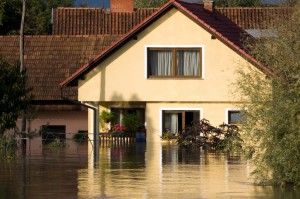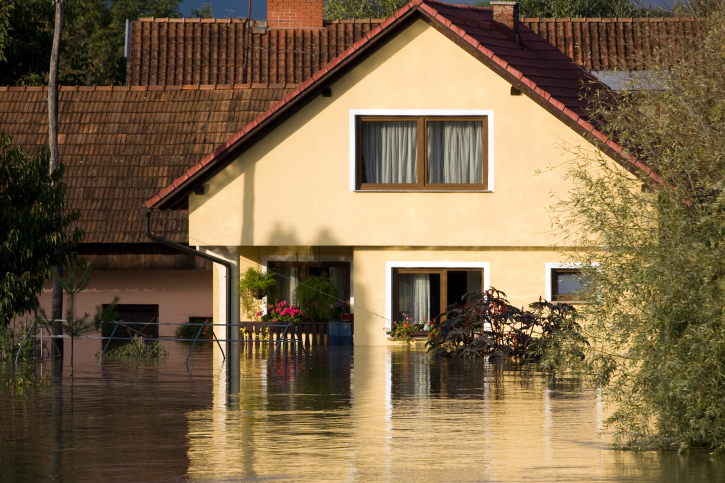The Financial Ombudsman Service receives around 350 complaints about building insurance each month and around half of these relate to damage caused by bad weather, such as flooding, severe wind and snow.
 There tends to be an increase in complaints following severe storms or prolonged periods of wet weather like we have seen over the past couple of months. Currently more than four out of ten cases the ombudsman deals with are found in favour of the consumer.
There tends to be an increase in complaints following severe storms or prolonged periods of wet weather like we have seen over the past couple of months. Currently more than four out of ten cases the ombudsman deals with are found in favour of the consumer.
Complaints about floods can cover a range of problems – from the time taken to sort out repairs to claims rejected over whether a ‘flood’ resulted in damage. Another common complaint is where an insurer argues that flooding wasn’t the cause of the damage and that it was caused by ‘wear and tear’.
The biggest problem with flood complaints is the time it can take to sort things out. If your property has been structurally damaged, it can take a considerable amount of time, sometimes years, before the property is habitable. During that time you may find yourself in alternative accommodation for a prolonged period. This can, in itself, be the source of much distress and frustration.
When the UK experiences a significant flooding incident, or a nationwide storm, insurers will generally commit to resolving the claims they have as quickly as possible. Problems tend to arise with localised flooding, where they may argue other factors caused the damage.
There are also complaints about the contractors the insurer use to sort out flood damage, from loss adjusters to builders and specialist repair workers.
It worth bearing in mind that flood claims aren’t just about natural disasters – in fact, the majority of complaints the ombudsman receives regarding rejected or partially paid claims are about burst pipes and other leaks.
The ombudsman recommends: “Speaking to your insurer as soon as you can, keeping records of personal items that may have been damaged and finding out what your policy will cover should you not be able to return to your home straight away can go a long way when it comes to easing the burden of making a claim.”
Tips on sorting out flood-related complaints
Seeing your home flooded is very distressing. Floods can cause extensive damage – and it can take a while to sort out. Try to stay calm – it will help get things sorted much quicker.
Call your insurance company to log your claim and get as much advice from them as you can – many have a 24 hour helpline – but make a note of when you called and who you spoke to.
Keep a record of any extra spending, including hotel bills and emergency repair works as this may be covered by your policy too. Make sure to keep them in a safe place with your insurance documents.
Take photos and video of the damage that has been done, mark on the wall the highest level the water has risen to, list all the damage to your house and belongings and even keep samples of things such as carpets to prove the quality of furnishings.
Once you’ve dealt with your property and its contents, you can then turn your mind to other insurances such as your vehicles. Most comprehensive motor policies cover flood damage too, so make sure to check what you could be owed
Finally, contact your insurer at the first sign of a problem, whether you are unhappy with the way any claims are being dealt with or a refusal to pay out – take it up with your insurer directly. Be clear what you want them to do to sort it out and if they can’t, get in touch with the ombudsman on0300 123 9 123.
Protect yourself if you’re worried the floods will reach your door
Speak to your home insurer to find out what you’re covered for. Even if you have to pay higher premiums, it pays to know you’re covered if something goes wrong.
Ask your insurer if they have any tips or requirements for preventative measures that you could take.
It makes sense to keep copies of your insurance documents in a safe place. You might want to scan and save the documents too in case the originals are damaged.
Take pictures of your property to show the condition it was in prior to any flooding, this could help you out in a claim.




